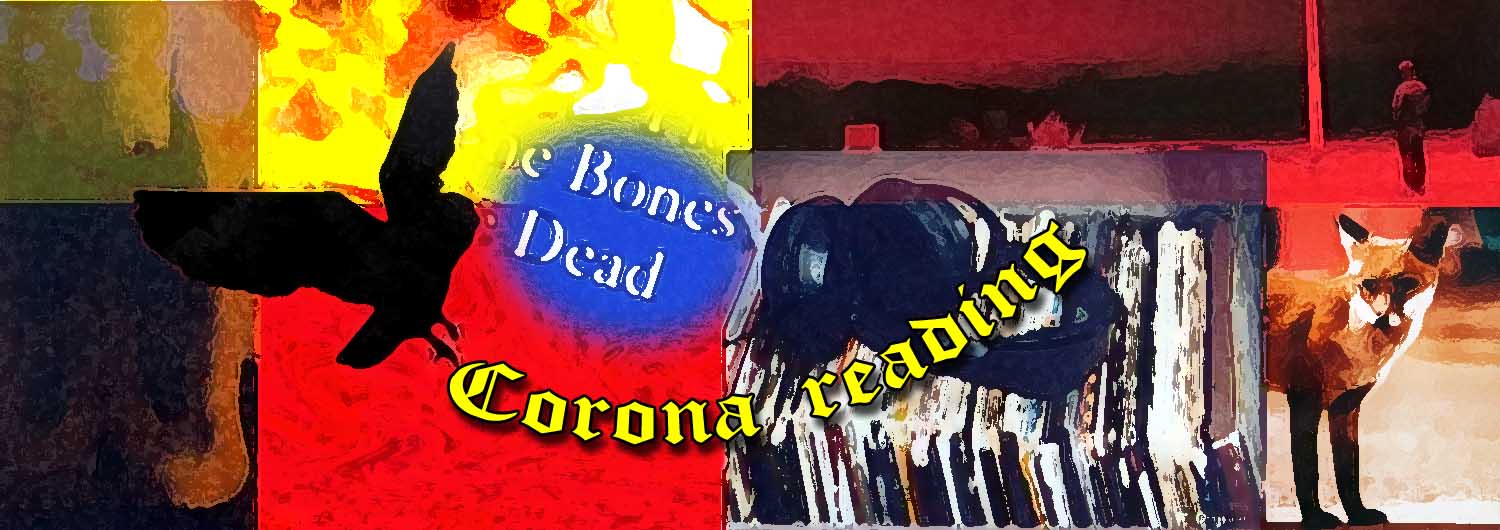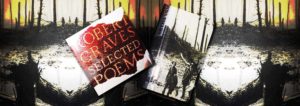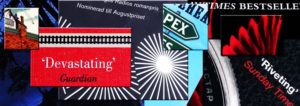TLDR – jump to the list of books
One positive thing to come out of the corona-pandemic: there’s a lot of corona reading going on. Possibly it’s just those of us who were going to be reading anyway getting a few more books under our belts. But hopefully, some people who had drifted away from reading will have found their way back. Maybe families that wouldn’t otherwise have started reading together will have done so, encouraged, if nothing else, by the volume of time we suddenly have available. Perhaps some will find themselves hooked and continue to read even after Covid-19 is but a memory. You never know.
For myself, I ended March and the year’s first quarter 14 books to the good.
My last entry took the story to mid-February, so here’s a rundown of the 7 titles I competed reading to the end of March.
The Depressed Person
Brief Interviews with Hideous Men, short stories by David Foster Wallace, was fantastic! Not an easy read, but a gripping one and a challenging one. And very amusing too. I’ve never read someone who, in fiction, can use footnotes (and even parentheses within footnotes) so effectively. (Outside of fiction, there’s Oliver Sacks.)
One of the stories was “The Depressed Person”, which was uncomfortable reading but horribly funny and very, very reminiscent of someone I know. It’s the story of a woman, the protagonist, who is depressed. She has every reason to be, because of a really messed up childhood. But she’s been so involved in therapy for so long that she speaks as if she’s a therapist and talks to her own therapist and to her “support circle” in therapeutic terminology. At the same time she is extraordinarily manipulative and emotionally draining. As you read her story you realise that she has almost certainly caused her therapist to commit suicide. The story concludes with her, in a very long and involved way, asking a friend in her support circle to “be honest” about how the friend feels about her. The friend is suffering from terminal cancer. It’s a beautiful, frightening and darkly humorous encapsulation of the character of an emotional vampire. Even though almost every feature of the protagonist is not the person I know, it’s still very reminiscent of that person.
I’ve not come across David Foster Wallace before, but I now have three more titles of his piled up on my bookshelf.
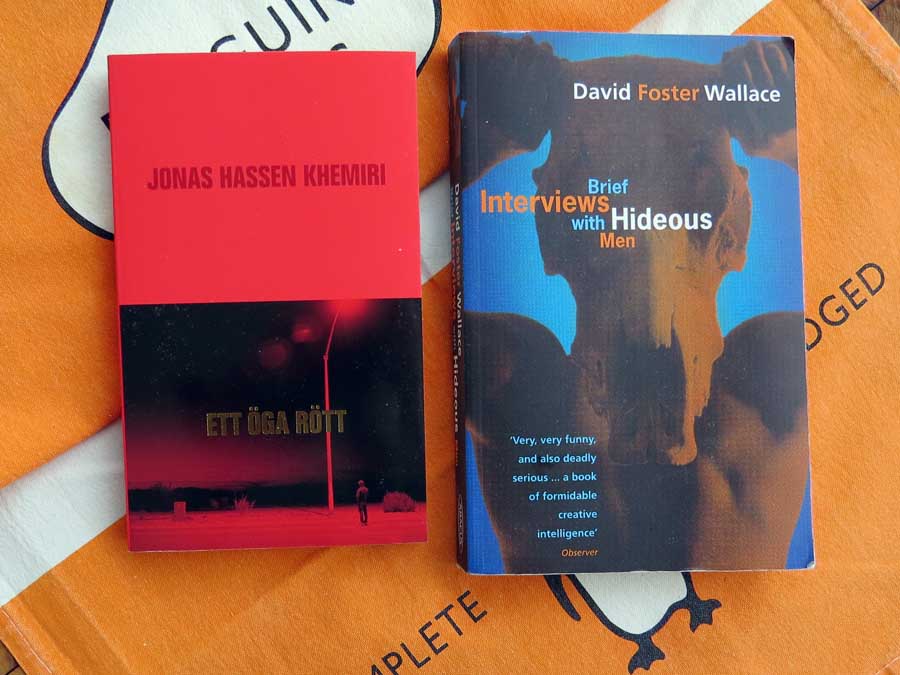
Red
For a complete contrast, my next book was Ett öga rött (One Eye Red) by Jonas Hassen Khemiri. This was Khemiri’s first novel. Completing it means I’ve read all his oeuvre. I think. It was a little disappointing, perhaps because it was his first book though I came to it last. The books he’s written since explore many of the same themes, but are more interesting in terms of structure, character and story. Probably Ett öga rött is a good entry book for someone wanting a flavour of Khemiri, but it wasn’t one of the high points of my reading quarter. (Though way in front of the Agatha Raisin book I reported on in the previous entry.)
Foxes
I followed a red eye with a book about red foxes. (My apologies for that segue. Not one of my best.) My next read was Happiness by Aminatta Forma. This tells the story of Jean, an American researching wild urban foxes in London, and Attila, a Ghanaian psychiatrist and world renown expert on mental health in conflict zones. Early in the book the two run into one another. Or at least Jean runs full-tilt into into Attila and falls over. Attila is a very tall, very wide, very stable and very gentle man. Jean is very intense and focused, with an unrivalled network of amateur fox spotters. When Attila’s godchild goes missing, Jean rallies her fox observers to help find the boy.
I thought this was a charming book about people behaving with compassion despite the coldness and incompetence of modern society. It’s got a lot to say about conflict, at all sorts of levels, about fake news and political bluster. (Boris Johnson makes an appearance, under a different name but quite recognisable.) It’s a love story too, about the relationships that Jean and Attila have lived through as well as their developing feelings for one another.
My favourite line is when, a bit shocked by his name, Jean asks if his parents named him after Attila the Hun. Attila replies: “Some people … name their baby girls Victoria.” (Think about it!)
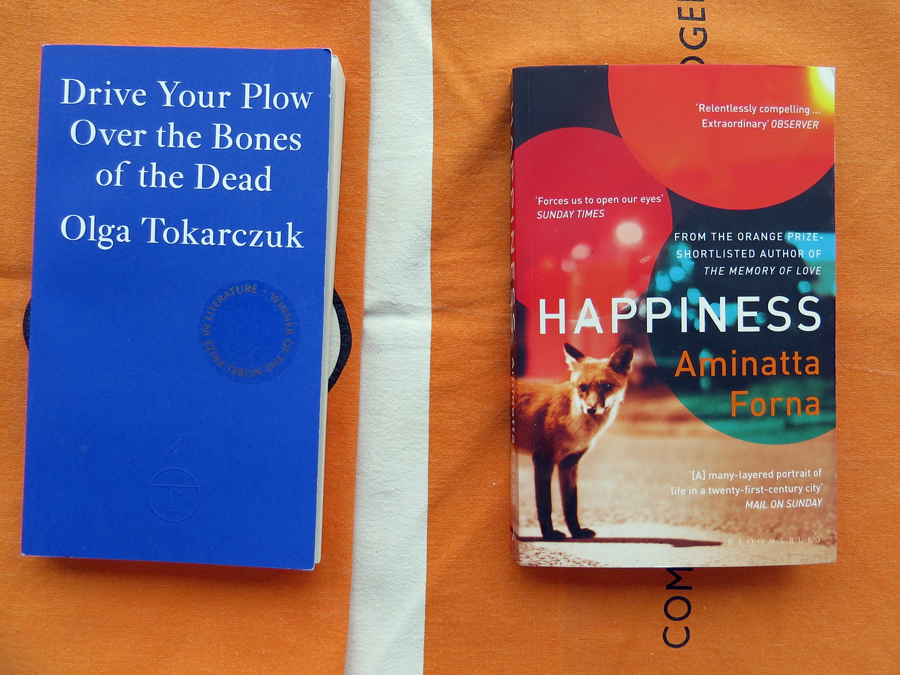
Corona reading and the bones of the dead
I completed reading Happiness on the plane taking me to England just before the coronavirus swept over the country. Had I know what was coming, perhaps I wouldn’t have travelled, but it did give me a chance to stock up on a variety of interesting books.
You might say my corona reading really started with my next book. Drive Your Plow Over the Bones of the Dead by Olga Tokarczuk. It’s a kind of detective story that bears a distant relationship to The Murder of Roger Ackroyd. For reasons I won’t explain. It’s also the work of a Nobel Prize winning author.
Janina, an older woman with a predilection for the poetry of William Blake, lives in a remote Polish village. The village is made up of houses, mostly occupied only in summer, on a plateau on the border between Poland and the Czech Republic. The story begins when Janina and one of her few winter neighbours discover the dead body of the only other winter neighbour.
As the local police are incompetent and regard Janina as a bit crazy, she takes it upon herself to investigate the death. Then two more bodies turn up. The book is fun and funny and very well written (and translated). Both fully anchored in the detective story genre, and containing so much more. Very satisfactory.
Second-hand Fidelity
My brother-in-law has an abiding belief that charity bookshops are the best places to buy books. This dates from when he and my sister lived in Highgate. The Oxfam bookshop on Highgate High Street was (maybe still is) a treasure island for book lovers. All the writers and journalists who live in Highgate used to donate the review copies of the many books that came their way.
The Oxfam shop in Market Harborough isn’t in quite the same class, but that was the destination for our one major family outing. Other than mum’s birthday celebrations. I came away with a very clean paperback copy of High Fidelity by Nick Hornby. I’d never actually read this. It came out in 1995 and by the time the paperback reached Sweden – I suppose at the end of 1996 – I’d started to fall. The black hole of my depression sapped my interest and ultimately even my ability to read. So I missed it. (Though I did see the film, some time when it was shown on TV.)
Anyway, I found the copy, bought it and enjoyed reading it through the rest of my time in the UK. Interestingly, though I enjoyed reading High Fidelity, it hasn’t left nearly as strong a mark in my memory as Bones of the Dead or Brief Interviews.
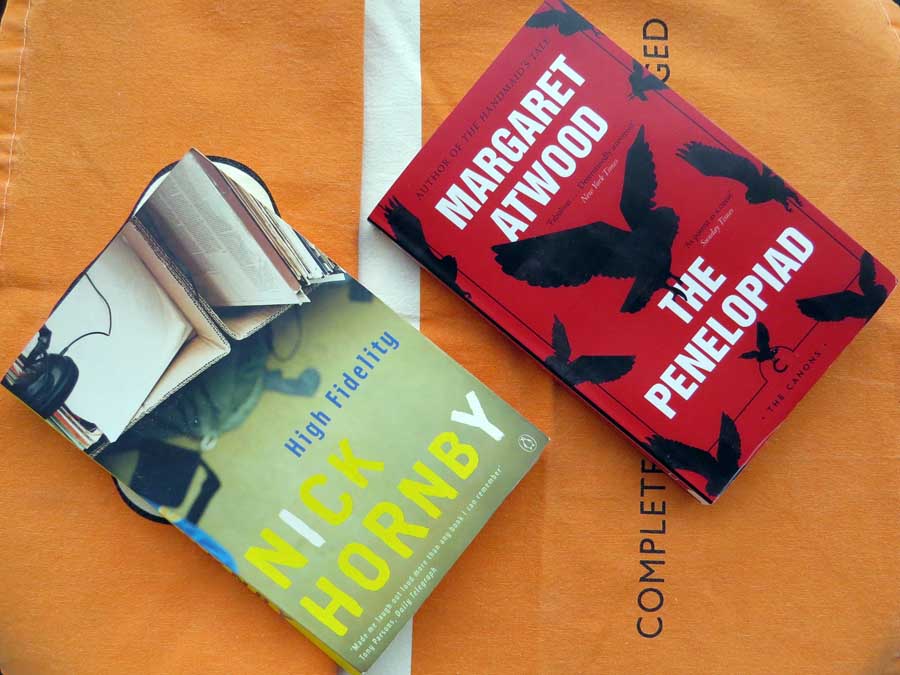
Antiseptic
At Gatwick Airport, where I spent about 36 hours cast between suspense and boredom, I also prepared my onward corona reading. (Suspense over whether I would get on a flight home. Boredom over – well, have you ever spent an extended period at an airport?)
In some well-chosen spots, it seems WH Smith have hived off their book section into Waterstones lookalikes. The one at Gatwick was running a two-for-the-price-of-one-and-a-half offer. I had several kilos to go before my check-in suitcase peaked the 23 kilo barrier. Pity the Gatwick shop was on the far side of the security gate and my light-weight suitcase was already checked in. But I spent time making a selection of all the titles I would have bought had circumstances been otherwise. And then I went around putting them back again.
I didn’t think about corona fears till the shop assistant appeared at my shoulder with a handful of tissues and a bottle of antiseptic. I’m not actually sure what she wanted me to do. Swab down the books before I put them back? What I did was clean my hands with the antiseptic and wipe the books with the tissues.
Penelope and the Owls
My homeward flight saw me get through most of Margaret Atwood’s The Penelopiad. I bought it in a pair with Pat Barker’s The Silence of the Girls. They are both women’s takes on the foundation myths of Western literature. The Penelopiad is Penelope’s story of what happened while Odysseus was away, and when he got home. The Silence is about the events of The Iliad and the Trojan wars. I’m reading the latter now, so I’ll write about it in a future entry.
The Penelopiad is told through the voice of Penelope, Odysseus’ long-suffering wife. There are interludes – often in verse – from the 12 slave women murdered along with the hundred-and-something suitors. The suitors who spent years living as guests off the largess of Odysseus’ estate, pestering Penelope to accept her husband had died on his travels. (The slave girls, once hanged for consorting with the suitors, turn into owls.)
I thought it was quite fun, but not particularly groundbreaking. Mrs SC, who read it after me and was equally unimpressed, says she thinks it’s intended for a Young Adult audience. I don’t know about that.
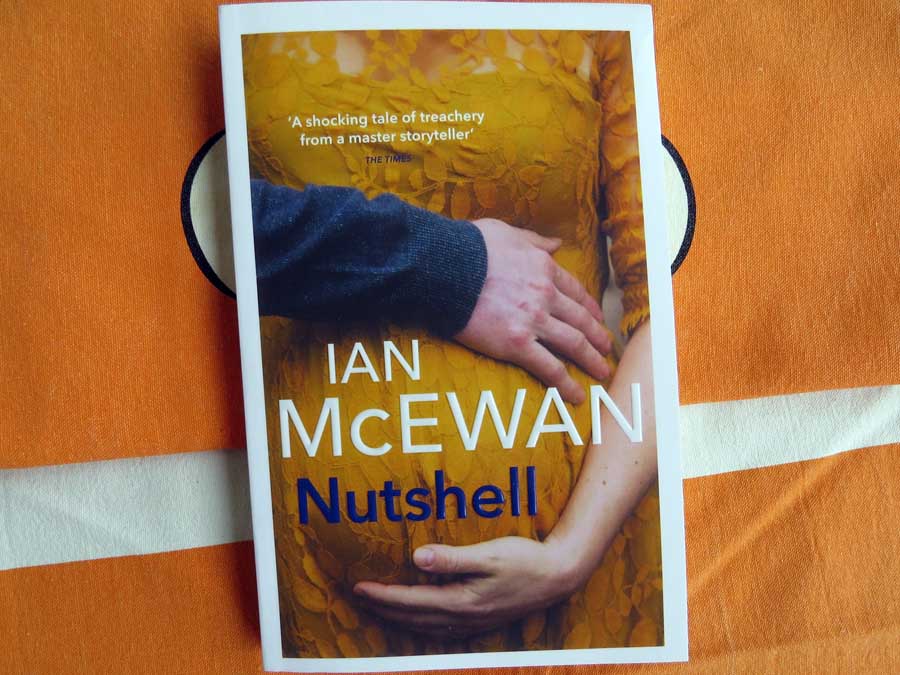
The year’s first quarter in a nutshell
Which brings us to my final title of the quarter, Ian McEwan’s Nutshell. As the story of a murder, planned and executed, and the investigation that follows, this would be a gripping tale. But McEwan turns the story up a notch or two further. He chooses to tell the story from the perspective of the nearly full-term baby in the womb of one of the murderers. The baby’s birth, inopportune from his mother’s point of view, prevents the murderers from escaping justice. A very satisfying read. (Much more so than Machines Like Me which was the most previous McEwan I read.)
So there it is. My corona reading will continue , no doubt. There are plenty of reasons to fear or detest the coronavirus in it’s onward surge around the world. Premature deaths as well as hospitalisations that don’t result in death are going to be deeply tragic on many personal levels. As is the blow to the world’s economy, particularly on the micro-economic level. I’m thinking of the impact on individual people’s livelihoods.
But there are silver linings. One small one: it’s helped me read 14 titles this quarter, so I’m ahead of myself in my quest to read 50 books in the year. And that’s worth a thumbs up!
What does your corona reading look like?
Too Long, Didn’t Read – a list of all the books mentioned in the text
Books read in the second half of the year’s first quarter. (Author links go to the author’s home page or nearest equivalent where I can find one, books link to their entry on Wikipedia or GoodReads.)
- The Penelopiad – Margaret Atwood
- The Silence of the Girls – Pat Barker
- The Murder of Roger Ackroyd – Agatha Christie
- Happiness – Aminatta Forma
- Iliad & Odyssey – Homer
- Ett öga rött (One Eye Red) – Jonas Hassen Khemiri
- Nutshell – Ian McEwan
- Machines Like Me – Ian McEwan
- Drive Your Plow Over the Bones of the Dead – Olga Tokarczuk (English translation: Antonia Lloyd-Jones)
- Brief Interviews with Hideous Men – David Foster Wallace

